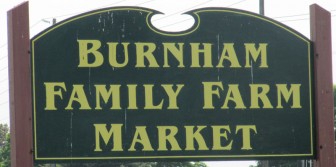Farmer and businessman Paul Burnham is right to seriously question Northumberland County’s official plan when he asks why industrial parks are replacing good farmland.
It is a sign the county’s economic development plan is antiquated and/or the planners don’t talk to economic development officers.
The county is on its final leg as it creates its own official plan expected to go before council on Sept. 17. Public comments are still being accepted until Sept 2.
Burnham is not only worried about industrial parks being created where currently farms exist, but also he is also concerned about residents living on the south side of County Road 2, west of Cobourg. He told county council at its last meeting these people would not want to be looking out at smoke stacks and factories.
And, while the lands may not be prime agricultural land, eventually the expansion will spread until all the good lands are gobbled up. The proposed plan suggests 77 hectares of adjacent lands west of Cobourg be rezoned.
A similar plan is proposed for Port Hope, where a potential 145 hectares of farmland may be rezoned for industrial development.
Meridian Planning Consultants partner Nick McDonald is working overtime to placate these worries, saying the county would designate the lands, but the local municipalities would need to sign off.
The argument for rezoning is based on the lack of investment-ready serviced industrial land in the county.
This is an old, tired approach to economic development flies in the face of the New Rural Economy. Attracting new industry to the area cannot be the centerpiece of future expansion. The record of the past few years is testament to the ravages of a globalization and free trade. Instead of opening new industrial plants, many are closing.
What is worse, the planners call it “employment lands” rather than industrial designation, as if the new term is going to attract businesses more quickly or taxpayers will be fooled. Ridiculous.
The days of Toyota or Honda (or any major manufacturer) building a mega-plant are long gone. The need for an additional 200 hectares of industrial park is ludicrous.
Certainly, there should be plans attract smaller manufacturers. But there is plenty of empty space and available lands already existing (the Kraft building in Cobourg, for one). Old buildings could be demolished and new ones built to suit. And, vacant lands could be easily serviced and a structure erected, if needed.
Yet, this argument is based on an erroneous trajectory.
Northumberland County needs to join with other municipal leaders in taking a completely different approach to economic development. It should be seeking to work with existing municipalities in reaching out with a single, unified message to entrepreneurs and innovators – individuals or small groups – around the world to come here to raise their families while they develop their businesses in a global context.
But more than anything else, the county’s official plan is the first step in a move to regionalize local government in Northumberland, despite all the protest to the contrary. Upper tier levels of government will eventually no longer fund two lower tiers – county and town/township. It is becoming too expensive.
The county planning department is meant to replace an older system, which helped the smaller, rural townships with their needs. No doubt the new system will continue to provide these services. And, it appears it will not step on any toes when it comes to the towns – Brighton, Cobourg, Campbellford and Port Hope.
But, the county is missing a golden opportunity to work in concert with all municipalities in creating a new vision for economic development, providing much needed leadership to attract an entirely new class of businesses to the region.
Thank goodness for Paul Burnham. While his motivation may not lead to the same place, his point remains a good one.



